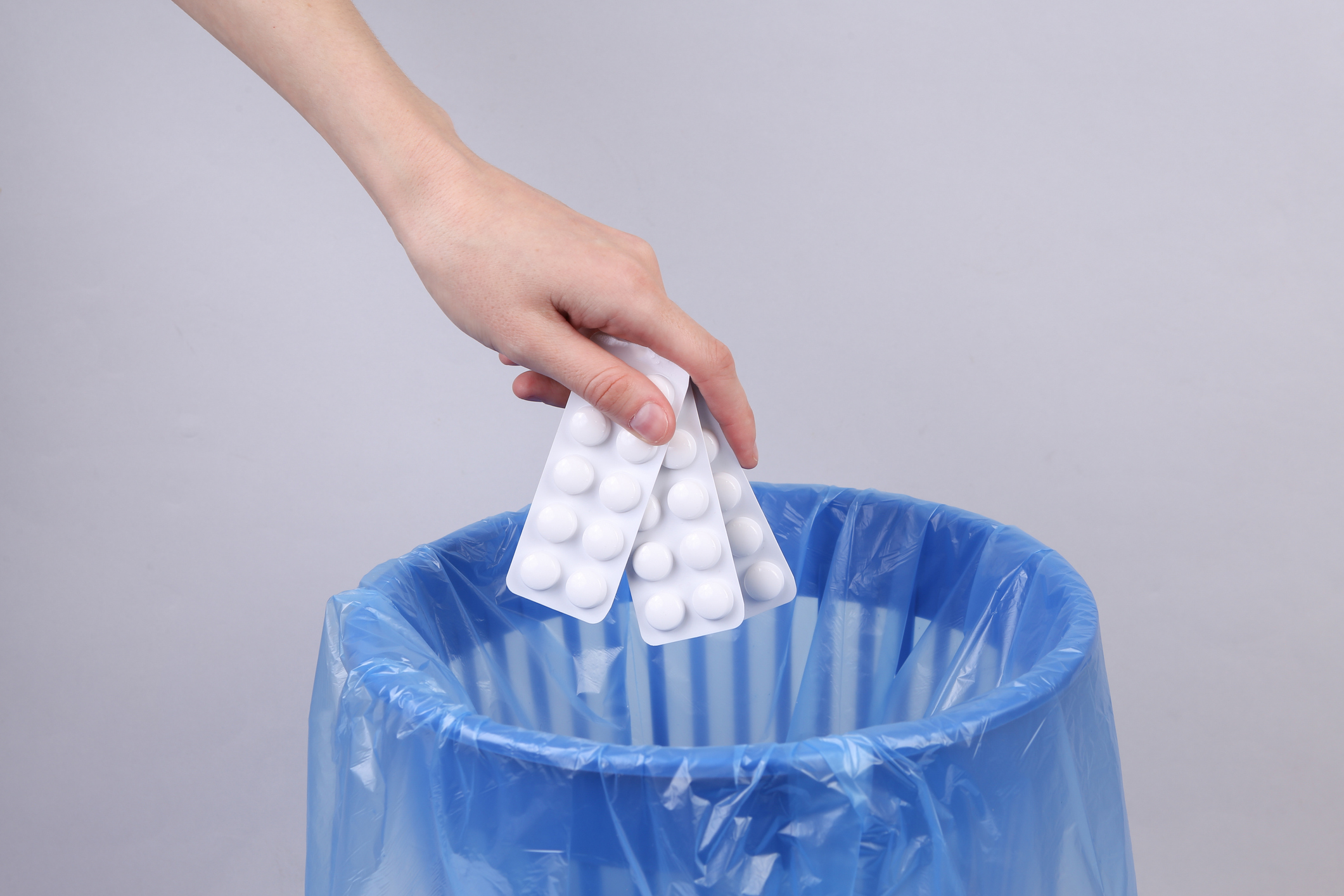When showers curtail outdoor plans, there is always an area of the home that could use some Spring cleaning, organizing, or decluttering. The medicine cabinet is no exception. After many months of postponement, drug take-back programs are rolling once again. Proper disposal of expired or unused prescription drugs or other medications helps keep these drugs out of landfills, water systems, and the hands of children.
Some pharmacies and many local law enforcement stations have prescription drug take-back programs and days to safely drop off unused medications. There are some drugs, such as fentanyl patches, which contain powerful medication that remains even after a patch is used. For this reason, fentanyl patches come with instructions to flush used or leftover patches that could be a serious danger to others.
According to the U.S. Food and Drug Administration, inhalers used by people with asthma or other breathing problems should be disposed of according to the instructions on the label. These aerosol products can be dangerous if punctured or thrown into a fire or incinerator.
For people who live in areas without a take-back program, drugs should be disposed of carefully to ensure pets or children don’t have access. Prescription drugs should be taken out of their original container and mixed with coffee grounds, cat litter, or another unpleasant substance that can act as a deterrent. The drugs and mixture should be placed in a sealable plastic bag or another container before disposal in the household garbage. Remove any personal identification from medication packaging to protect privacy.
Elderly adults who have young(or teenaged) grandchildren or great-grandchildren that visit, can help protect kids from accidental poisoning or misuse by securing medication in a location that is not accessible. According to a recent Nation Poll on Healthy Aging survey, more than 80 percent of grandparents polled said they keep their medication in the same place as usual when their grandchildren visit; and 72 percent keep medication in their purse or bag when they visit their grandchildren. Nearly one-third said they store their prescription medications in an easy-to-open container rather than the original packaging.
Read more about Prescription Drug Return Initiatives in Canada by following this link to Public Safety Canada.






Add Your Voice
0 Comments
Join the Discussion